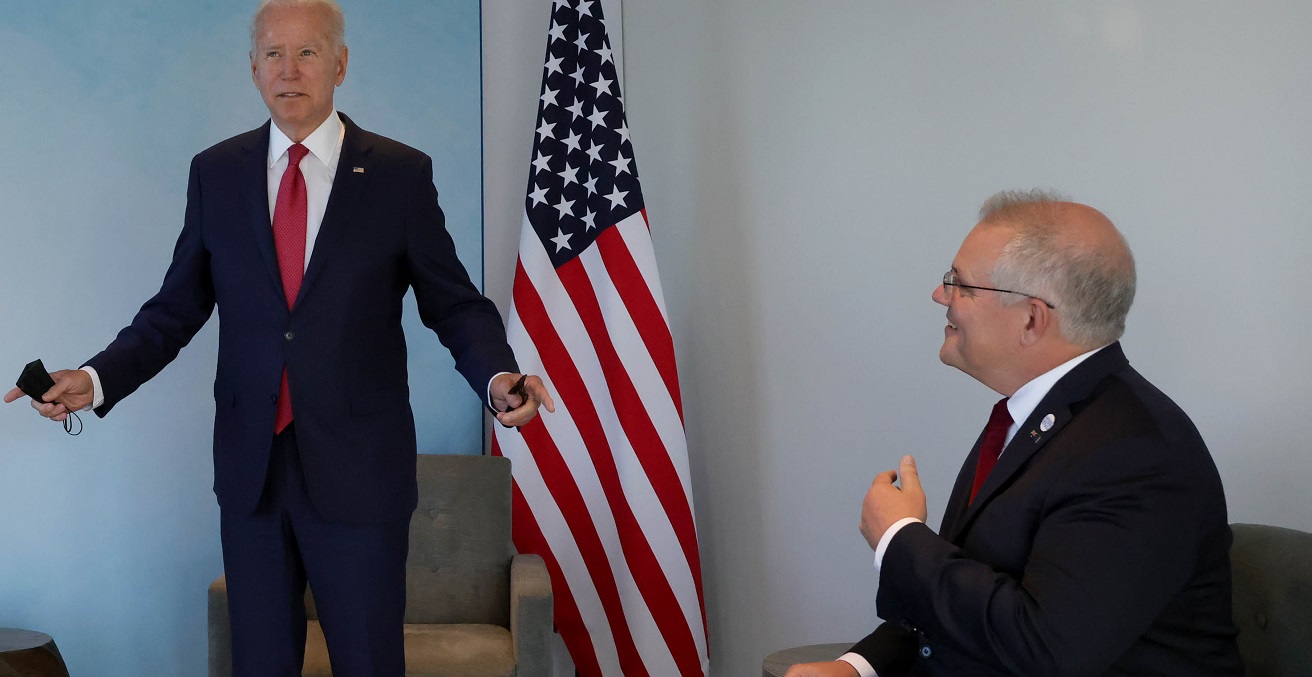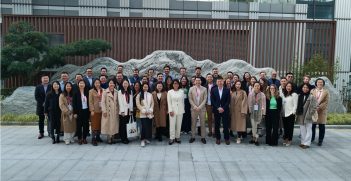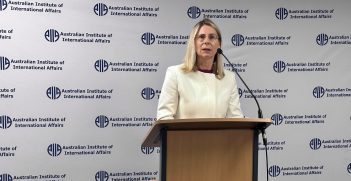Between a Rock and a Hard Place: Why the US, not China, should be Australia’s Biggest Security Concern

The closing days of the Trump administration raised serious questions about American democracy. Should lingering political problems in the United States prompt Australia to rethink its position towards its most important ally?
When discussing Australia’s national security, legislators, academics, and commenters often cite China as the primary strategic threat. The federal government’s posturing certainly echoes this sentiment. They have scrapped domestic agreements tied to China’s Belt and Road Initiative, banned Chinese telecommunication firm Huawei from building Australia’s 5G Network, expressed alarm at the repression of Uighurs in Xinjiang, condemned the treatment of protestors in Hong Kong, and criticised China’s “destabilising actions” in the South China Sea. These actions have not gone unnoticed in Beijing, which has accused Australia of adopting a “Cold War mindset” and engaging in “ideological discrimination.” To this end, China has cut off all high-level ministerial communications between the two countries.
But it appears that China’s reading of Australia’s strategic outlook is not far off the mark. On 9 June, Prime Minister Scott Morrison, in a major foreign policy speech to the PerthUSAsia Centre, asserted that liberal democracies must “reinforce, renovate and buttress a world order that favours freedom.” In doing so, Morrison seemed to suggest that an ideological battle between democracy and autocracy lay at the forefront of strategic competition in the Indo-Pacific.
This perspective is augmented by Australia’s increasing alignment with the United States on matters of regional security. In March, Morrison participated in the first-ever leaders’ meeting of the Quadrilateral Security Dialogue, convened by Australia, the US, Japan, and India to establish mechanisms by which to combat China’s regional ascendency. Senior officials from both Australia and the US have discussed a proposal to form a new joint US Marine Corps and Australian Defence Force training brigade based in Darwin. Defence Minister Peter Dutton has openly declared that Australia’s security depends on closer military ties with its ANZUS ally. Even as Morrison announced an additional $270 billion in military spending over the next decade, he made sure to reiterate that the US will remain “the foundation of [Australia’s] defence policy.”
Morrison is banking on liberal democracies coalescing around shared values and working in tandem to rebuff an increasingly assertive China. He equally hopes that this coalition is helmed by the US. But his strategy faces a significant hurdle: the imminent collapse of American democracy. Morrison will find it difficult to “buttress” a liberal world order when the country that helped build that system stops believing in its founding principles.
Some may view claims of US democratic collapse as overly alarmist. But the facts speak for themselves. On 6 January, avid supporters of Donald Trump stormed the US Capitol in an attempt to disrupt the certification of the 2020 election results, which they claim was stolen from the former president. A Reuters/Ipsos poll, published in April, found that 60 percent of Republicans and 32 percent of all voters share this view. The Republican Party ousted Liz Cheney from her House leadership position for simply asserting that Joe Biden was legitimately elected president. Republican state legislatures have begun a sustained campaign of implementing racially coded voting restrictions. Former National Security Advisor, Michael Flynn, told a QAnon conspiracy themed conference that a Myanmar-style military coup “should happen” in the US.
These examples barely scratch the surface of what appears to be US descent into democratic ruin. Nor do they include institutional ailments in the American democratic process, such as the electoral college, voter suppression, gerrymandering, and legislative obstructionism via the filibuster. For example, the US Senate recently rejected a bipartisan bill (54-35) attempting to establish a commission that would investigate the Capitol riots, despite those in favour of the proposed legislation representing 87 million more Americans than the Republicans who opposed it. Moreover, the extreme polarisation of the American political and social class has left some wondering whether a Republican Congress will ever again certify the election of a Democrat as president. This dynamic could be tested as early as 2024, and were it to happen, US democracy would arguably be beyond repair.
Such a scenario would have serious implications for the strategic vision Morrison describes. If ideological conflict lies at the heart of strategic competition in the Indo-Pacific, then China will invariably seize the upper hand. China’s model of authoritarian governance, indifference to human rights, and callous regard for international norms becomes much more palatable in a world absent a free, open, and viable democratic US alternative. Australia’s ability to exercise creative middle-power diplomacy against China will also be severely compromised if beholden to a strategic alliance with a radicalised, anti-democratic US.
The hope is that President Biden can actualise his promise to restore and reinvigorate American democracy, stave off extremist political actors, and engage allies to effectively deal with China’s manoeuvrings in the Indo-Pacific. Indeed, Australia has not deviated from its position that US leadership is needed to underwrite the security and stability of the region. But such hopes must be measured against reality. Guarantees of US democratic revival do not exist in the fractious political environment Biden finds himself in. Australia must acknowledge the potential for such a scenario and adapt accordingly. Otherwise, it might just find itself wedged between two anti-democratic superpowers with no viable exit strategy – an unwanted and quite frightening scenario.
Sanjay Balakumar is a fifth-year student at the University of New South Wales, studying a Bachelor of International Studies and a Bachelor of Laws. He is currently an editor for both the Young Diplomats Society and Politik, the student-run UNSW International Affairs Review. He was previously a Grants Officer with the United Nations Association of Australia NSW Division and a volunteer at the Toongabbie Legal Centre. Sanjay’s research interests include economic and political security in the Indo-Pacific, the dynamics that shape countries’ elections, climate politics and technology’s impact on informed public discourse. Sanjay is an intern with the Australian Institute of International Affairs NSW.
This article is published under a Creative Commons License and may be republished with attribution.





